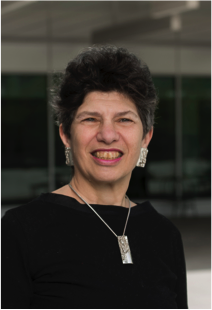Dr Louise Shelley is the Omer L. and Nancy Hirst Endowed Chair and a University Professor at George Mason University. She is in the Schar School of Policy and Government and directs the Terrorism, Transnational Crime and Corruption Centre (TraCCC) that she founded. She is presently an inaugural Andrew Carnegie Fellow writing a book on illicit trade and sustainability under contract with Princeton University Press.
Her most recent book: Dirty Entanglements: Corruption, Crime and Terrorism, has been published by Cambridge University Press (2014). She is the author of Human Trafficking: A Global Perspective (Cambridge 2010), other books and many book chapters and articles on transnational crime, human trafficking and the relationship between crime and terrorism.
Dr Shelley is the recipient of the Guggenheim, NEH, IREX, Kennan Institute, and Fulbright and Rockefeller Foundation fellowships and received a MacArthur Grant to establish the Russian Organised Crime Study Centres and recently completed a MacArthur grant studying non-state actors and nuclear proliferation.
She also appears frequently in the media and lectures to academic and policy audiences internationally. She served on the Global Agenda Councils of the World Economic Forum on organised crime and illicit trade. She is a life member of the Council on Foreign Relations.
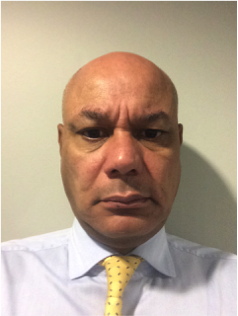 Fitz-Roy Drayton
Fitz-Roy Drayton
Called to the Bar of England and Wales in 1983. He is employed by the Solicitors Department of New Scotland Yard, Crown Prosecution Service’s Central Confiscation Branch.
Drayton left the UK in 1999 and has since worked for five years in the Caribbean, two years at the Legal Department of IMF in Washington DC, four years in the Pacific and a year in Serbia.
Currently, he is an Adviser to United Nations Office on Drugs and Crime on Asset Forfeiture, Money Laundering and Proceeds of Crime. This position covers 10 countries in Southern Africa providing technical assistance and training and also coordinating the Asset Recovery Inter-Agency Network for Southern Africa (ARINSA).
Publications have appeared in the United Nations Drug Control Programme Journal, Journal of Money Laundering Control, Caribbean Law Bulletin, and Caribbean Chiefs of Police Quarterly.
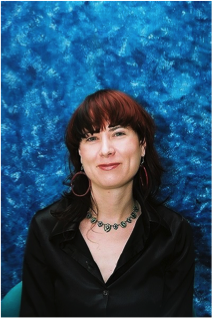 Dr Annette Hübschle
Dr Annette Hübschle
Dr Annette Hübschle is a postdoctoral research fellow at the Centre of Criminology. She is setting up the Environmental Security Observatory (ESO), a joint initiative of the Centre, the Global Risk Governance Programme, located in the Institute for Humanities in Africa at UCT, and the Global Initiative against Transnational Organised Crime. She also acts as a senior research advisor to the Global Initiative against Transnational Organised Crime. Her current research focuses on the governance of safety and security, with a specific focus on illegal wildlife economies and the ecosystems that support them, as well as their intersections with legal economies.
Before joining UCT, Annette was a doctoral researcher in the Illegal Markets research group at the Max Planck Institute for the Study of Societies in Cologne, Germany. She worked for one of Africa’s leading applied policy research institutes, the Institute for Security Studies (ISS). Annette was a senior researcher with the Organised Crime and Money Laundering Programme in the Cape Town offices of the ISS between 2002 and 2011. She led and conducted research into organised crime and terrorism in Sub-Saharan Africa. Annette has also worked as a researcher, consultant, and practitioner on a variety of organised crime, environmental security and broader African security issues.
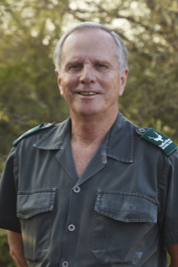 Maj Gen (ret) Johan Jooste
Maj Gen (ret) Johan Jooste
Maj Gen Johan Jooste retired from the South African Army in 2006 after 35 years of active service. He is a war veteran and the last part of his military career he served in the Army General Staff in various capacities, but always involved with strategy, leadership development and knowledge management. Apart from his experience, his learning path through four universities, including an MBA, served him well in this period. He joined a small company in the military vehicle business in 2006 and two years later took up a position with a multinational company, BAE Systems, where he was the Director Business Development. At the beginning of this 2013, he was appointed as the Commanding Officer Special Projects at the South African national Parks (SANParks), responsible for all matters related to the anti-poaching strategy, planning and execution. The current focus is rhino poaching in the Kruger National Park, but he is also establishing a Wildlife Crime and Corruption Combatting Coordination Centre at the SANParks Head office.
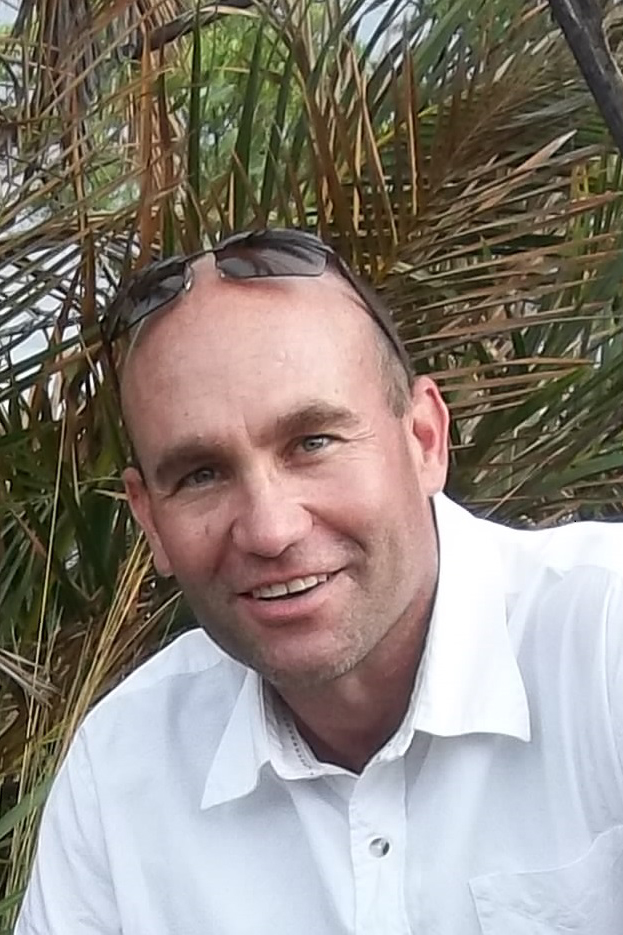 Andrew Parker
Andrew Parker
Andrew Parker has 20 years’ conservation experience across Africa in both the public and private sectors. The past 10 years he has spent at a senior executive level running large teams, managing diverse stakeholder groups and driving and implementing strategies to deflect the threat of organised poaching. He has also included local communities in the conservation value chain to optimise the simultaneous development of conservation and tourism objectives in confined protected areas. Parker is presently acting in the capacity of Conservation Director for African Parks, driving conservation policy and new project development.
 Dr Duarte Gonçalves
Dr Duarte Gonçalves
Duarte Gonçalves is a registered professional engineer with a Bachelor of Engineering in Electronics Engineering, a Master of Engineering in Computer Engineering and a Doctor of Philosophy in Engineering Development and Management. He is currently employed by the CSIR as a Principal Systems Engineer. He has been involved in engineering surveillance systems for the South African National Defence Force (SANDF) and has consulted to the Karoo Array Telescope and led a renewable energy project as a systems engineer. As part of an effort to develop systems engineering skills at the CSIR and nationally, he has developed a practice-based systems engineering programme, which is being presented at Wits University. More recently he has been involved in Force Planning and Design for the SANDF. He currently leads a Whole-of-Society approach to strategy development at the CSIR with border security and rhino poaching as the first applications of the approach.
Duarte has a strong interest in trans-disciplinary problems that span engineering, social sciences and strategy.
 Louiza Duncker
Louiza Duncker
Louiza Duncker is a principal researcher at the CSIR Built Environment and has a Master’s degree in Anthropology. She joined the CSIR in 1995 and focused on the interface between humans and technologies for sustainable development. She has been involved in research in rural and urban areas on social and community dynamics and behavioural patterns through projects on gender, appropriate water, sanitation and infrastructure technologies, water conservation and wildlife crime prevention in developing communities. These research results were implemented in the development of, amongst others, policies, strategies, approaches and manuals for a number of South African national government departments and project implementers worldwide.
Louiza worked with a number of international development agencies on social and gender issues related to water and sanitation, has delivered several papers at national and international conferences and workshops, and is the author of a number of research reports and publications. She is a member of the Water Supply and Sanitation Collaborative Council in Geneva and sits on several steering committees for research projects. She is regularly invited to participate in national workshops and planning sessions on issues pertaining to water supply and sanitation.
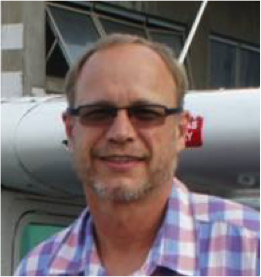 Dr Peter Schmitz
Dr Peter Schmitz
Dr Peter Schmitz holds a Doctor of Philosophy in Geography and a Bachelor of Science (Honours) degree in Geoinformatics. He is a registered professional Geographic Information Science practitioner in South Africa. He is a principal researcher at CSIR Built Environment. He is active in geospatial analysis and forensic geography. He is also active in logistics, specialising in supply chains for the military and spatial data as well as in forensic geoscience looking at cellular telephone usage when crimes were committed as well as supervising research on the effects of leached explosives on plants and using sand grains and chemical properties to link poachers to poaching sites. He received several awards for his work in geospatial analysis and presented numerous papers at various local and international conferences. He has been part of the CSIR team that did the election-night forecasting at national and local municipal elections since 1999. He is currently the commission chair of the ICA Commission on Map Production and Geoinformation Management. He publishes in peer-reviewed journals and is a member of the Royal Society of South Africa.
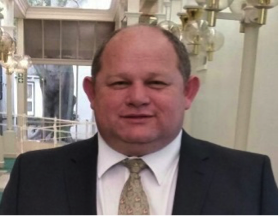 Colonel Johan Jooste
Colonel Johan Jooste
Colonel Johan Jooste is the National Section Commander of Endangered Species in the Office for Serious Organised Crime at the Directorate for Priority Crime Investigation, also known as the HAWKS. He has 26 years’ experience in policing of which 20 years as an Organised Crime Detective and two years within the Directorate for Special Operations. Colonel Jooste has a Diploma in Criminal Justice and Forensic Investigations, as well as a National Diploma in Police Administration. He has been trained in several internal and external fields of investigation, which includes project management, Chinese organised crime, drug trafficking and precursor diversion, financial investigations, racketeering and money laundering, environmental crime and crime analysis.
Colonel Jooste is the lead investigator of numerous high profile transnational wildlife cases. He received accolades for his work done in the field of transnational wildlife crime which includes, Certificate of Appreciation: Expert assistance on the Endangered Species Investigation Learning Programme, Best Project Investigation Team DPCI, Letter of Appreciation: Department for Environment, Food and Rural Affairs, UK Parliamentary Under Secretary: Lord de Mauley, and Rhino Conservation Award: Best Judicial System and Policing. He was part of the INTERPOL Executive board for Wildlife, Pollution and Fisheries and is still working closely within the INTERPOL environment.

